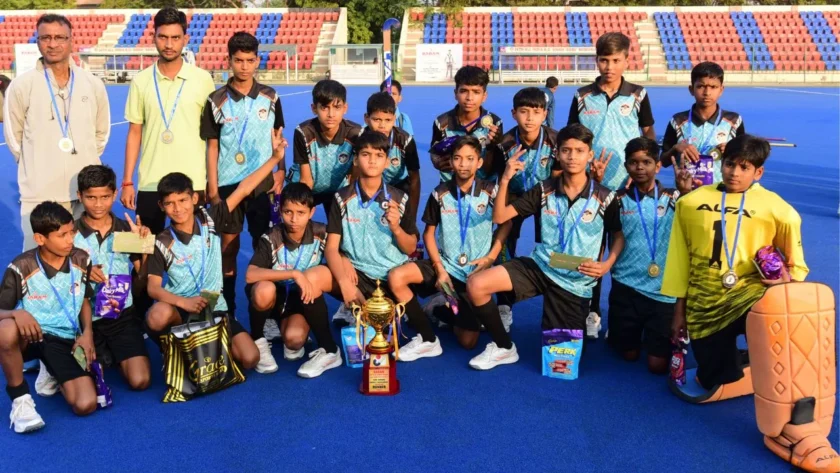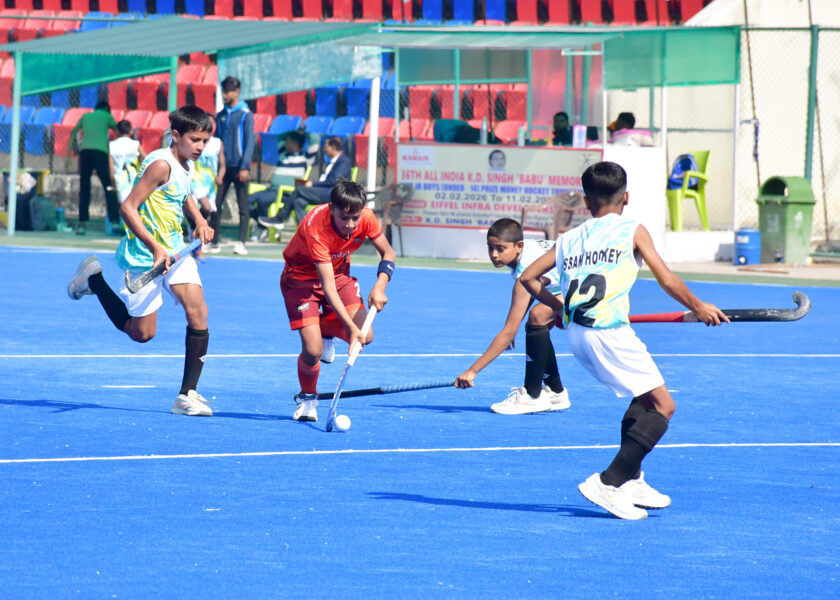Lucknow: Elite or elite sports are about passion and unpredictable results. Coaches take decisions based on their conscience and influence the game. It has always been like this, until recently. But now artificial intelligence has started influencing coaching at the elite level. But a bigger question is, will its use make games more predictable and less emotional?
Data has been used for years to analyze games, but when it comes to evaluation, coaches are rapidly reaching the limits of their ability. This is because game data is becoming more accurate and comprehensive. This is an area where AI should help in the future.
As per an expert – “Artificial intelligence is a technology performed by computers and machines that normally requires human intelligence, but is usually too complex for people to understand.” He further enunciated – “These AI systems use data and algorithms to autonomously recognize patterns in play and objectively evaluate them.”
Will AI replace humans?
AI has revolutionized the field of data-based analysis and is having a huge impact on tactical decisions, injury prevention and training loads. In recent years, Sports clubs have ramped up their use of AI. Clubs have realized how much they can do with the data they collect.
Sports clubs are also expanding their expertise. Instead of employing people with experience in a specific sport, clubs are increasingly turning to programmers and computer scientists.
In 2017, Barcelona hired 15 new data and video analysts, as well as data scientists. The use of AI systems will result in more people working on specific games, not fewer says a keen watcher.
Reportedly teams will always need experts who know the game really well and who can work with the information and metrics provided by AI.
The results obtained by analyzing data related to sports with AI help the players, but there is also a fear whether this will eliminate the need for humans.
Scouts at German Bundesliga club Schalke are using AI to help discover new players.
Schalke sporting director Peter Knabel told German public broadcaster ZDF: “We have defined about 40 values in our scouting and for three of them we use artificial intelligence (AI). With this we decide whether they are “Those are the values that make the difference for us. For example, you define a player’s movement behaviour. For example, the accuracy with which he passes the ball.”
In this way it is easy to see whether the value of a footballer is the same as that of a player who is no longer in this world. Yet the final decision is still up to the scouts and coaches. In this case, AI is another way to better assess potential Schalke players.
Intelligent systems are also being used in handball. For years, Bundesliga handball players have been wearing sensors that collect millions of pieces of information, including distance covered, speed, playing conditions and biometric data.
The more complex AI becomes, the more logical it becomes. Yet the use of AI-based data is still in its infancy. The current system is only as intelligent as the information it receives from people. However, it will continue to evolve rapidly, making the game more digital and changing itself.
In India, on the lines of foreign countries, the performance of players in India is also being enhanced through Artificial Intelligence and Data Science. A team of professors from Indian Institute of Technology (IIT), Madras is engaged in taking the game to the next level. Their aim is to create such a model, which players coming from small towns can also benefit from. Advanced technology is still out of reach of small town athletes.

A program on the contribution of new technology in improving the performance of players was organized by the Government of Haryana, National Center for Sports Science and Research (SCSSR) in the Khelo India Youth Games 2022 held at Tau Devi Lal Stadium, Panchkula.
Professor Mahesh Panchagnula and Professor Nandan of the Analytics Center of the Indian Institute of Technology (IIT), Madras, who attended the meeting, said that technology is making an important contribution in improving the performance of the players. It is often seen that big players go abroad for practice and take coaching abroad.
The main reason for this is the state-of-the-art technology related to sports, artificial intelligence and data science available there. Using this, work is done to further improve the performance of the players. The team at IIT Madras is working to make all this easily available to our players in India.
IIT Madras is working with three objectives. The first objective is to arrange such a training program for the athlete, in which he can easily identify his abilities through technology and overcome his shortcomings. The second objective is to increase the performance of athletes through science and AI.
The aim is to promote new start-ups for new technology related to sports and create such an ecosystem so that this technology becomes affordable and can reach the common people. With this, players coming from small towns will also be able to take advantage of this technology.
Ever since technology has come into contact with sports, a lot has changed on the field. While the game has become much cleaner than before, there has been a lot of improvement in the decisions related to the game. Not only cricket, tennis, football and hockey, the dependence on technology has increased in almost every sport.
Today, the emphasis of technology is so much that it is being accepted without any hesitation in every sport, along with this, more new technology is also entering the sport.
Swimmer Michael Phillips, who won a record 22 medals in the Olympics, had resorted to many techniques to be successful in the Olympics. His coach made him fit using techniques and then won medals one after the other. Besides, now such training jackets have also come which players can wear during practice to know how many kilometers they have covered on the field.
In his Opinion Piece for YourStory, Vinayak Shrivastava writes in a piece titled – How AI Is Revolutionising Performance Analysis and Fan Engagement in Sports – Athletes now experience the advantages of state-of-the-art technologies that analyse their movements, monitor performance metrics, and forecast potential injuries. Real-time processing of extensive data by AI algorithms offers coaches invaluable insights, enabling them to customise training regimens and strategies for optimal outcomes. Smart strategies lead to smarter gameplay. Stepping into the age of intelligent tactics and transformative plays, AI’s influence goes beyond physical abilities; it’s about making well-informed decisions. Teams and coaches utilise AI algorithms to dissect opponents’ game patterns, anticipate their actions, and plan effective counter-strategies.
He further adds – It not only brings an element of unpredictability to the game but also elevates the strategic aspect of sports to unprecedented levels. The National Football League (NFL) has harnessed data’s power to transform player performance, injury prevention, fan engagement, and strategic decision-making. Data analytics and technology have greatly improved the game. Since 2002, NFL has used this to introduce almost 50 rule changes to reduce the risk of injury.
Additionally, AI-driven predictive analytics has swiftly become integral providing teams with a competitive advantage through accurate outcome projections. The global sports industry, with highly lucrative and attracting substantial investments, witnesses disruptive AI utilisation. Storytelling with AI AI has reconfigured the sports experience for fans, both in stadiums and on any streaming device, by expanding fan engagement and reaching a wider audience for brands and teams.
He underlines – The focus has shifted to visual storytelling, with content creation automatically generating customised narratives by analysing player movements and crowd atmosphere, compiling thrilling highlights without any manual intervention. Additionally, customisation, player tracking, and multiple camera angles enhance viewer experience and engage social media. AI algorithms prioritise developing player holograms in stadiums to enhance immersion and grow fan communities for brands. In cricket, algorithms improve techniques using bowling machines that mimic deliveries, and AI analysis helps batsmen simulate strategies precisely.
For the love of fans The fusion of athleticism and AI has opened up thrilling avenues for both fans and athletes, transforming the sports experience. The sheer power of data makes it the central focus of any conversation. Fans want deeper insights into their favourite teams and players, using platforms like OTT, social media, and streaming services.
The presence of big tech in sports media has notably altered the experience from what it was on linear TV a decade ago. AI’s impact goes beyond the playing field; it is redefining fan engagement by tailoring experiences with personalised content, insights, and even match outcome predictions. Through the use of immersive virtual reality or AI-driven chatbots, fans can now enjoy elevated connectivity and engagement with their preferred sports.










